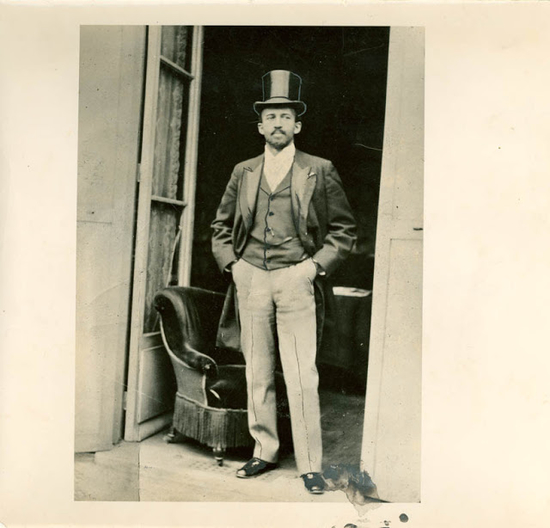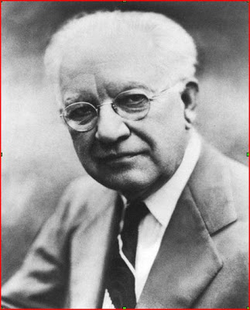Liberation Sociology
Commentary by Chitown Kev
The Scholar Denied: W.E.B. Du Bois and the Birth of Modern Sociology
by Aldon D. Morris
University of California Press, 281pp., $29.95
One of the benefits of my personal studies of what is sometimes referred to as “black nationalism” was the opportunity to read and study the essential texts of my people on my own, “Fubu-style,” without the mediation of any college professor or even a book group. I’ve always been the sort of reader that enjoys digging into footnotes and subtexts and following those clues into the library reading various sources. Ta-Nehisi Coates captures the sheer wonder of Fubu-style education in Between the World and Me and I have no words to add to Mr. Coates’ description in that book.
No Fubu-style education is complete without reading some of the works of Dr. William Edward Burghardt “W. E. B.” Du Bois. The Souls of Black Folk, of course, is now part of the canon of American literature (not just the black part!). I also read various essays of Dr. Du Bois, marveling at this black genius who studied in Germany in the heyday of German scholarship and who was the first African-American to receive a doctorate from Harvard. I also thought that Dr. Du Bois was a bit of a prude and a Victorian (in other words, a man of his age) for some of his criticisms of Harlem Renaissance writers, even as he helped to promote the black (gay) movement through his editorship of the NAACP magazine, The Crisis.
I would never think that the idea that Dr. Du Bois was one of the American founders of the discipline of sociology (as we have come to know it) is even a controversial claim; simply a skimming of Dr. Du Bois’ study of the black community in Philadelphia, The Philadelphia Negro, and a little background reading into the fact that Dr. Du Bois’ use of graphs and charts was something rarely seen in a book of its type at that time (and one has to take into account that there were no “schools” or even much undergraduate study what we now call “sociology”) would disabuse anyone from that notion. Yet Dr. Aldon Morris, Leon Forrest Professor of Sociology and African American Studies at Northwestern University, persuasively argues in his new book, The Scholar Denied: W.E.B. Du Bois and the Birth of Modern Sociology, that the recognition of Dr. Du Bois as a pioneer of American sociology has only occurred in the last twenty years due to “an explosion” of “Du Boisian scholarship” and that throughout his lifetime, Dr. Du Bois’ achievements as a pioneer American sociologist and as a founder of the first “school” of American sociology were, on one hand, rendered nearly invisible by racism within the American intellectual community while, on the other hand, these very same schools of sociology (primarily the “Chicago School” of Sociology), at times, used the insights of what Morris calls the Du Bois-Atlanta School of Sociology with little or no attribution.
Morris attributes much of the marginalization of Dr. Du Bois early 20th century achievements to the Du Bois-Booker T. Washington conflict and the differing views of the two black leaders. Washington, at that time, through the influence of Tuskegee Institute, his support of industrial education for blacks, and his refusal to challenge Southern Jim Crow became the patron of white industrialists and financiers. The price of that ticket (if I may use that Baldwinian phrase) was that Jim Crow was to remain unchallenged and that white superiority (and the myth of black inferiority) would be maintained. Over the years, I’ve taken a somewhat softer and more understanding point of view toward Washington’s willingness to accommodate white supremacy but the numerous and detailed quotations of Washington’s own words in The Scholar Denied cannot help but to remind me, at times, of these jacked-up prosperity gospel preachers of today.
It is Dr. Du Bois’ refusal to accept Washington’s offer of a post at Tuskegee in 1905 that sets the stage for his marginalization. Washington, instead, hired Robert E. Park, a man described by Dr. Morris as having “few professional accomplishments” (and certainly nothing anywhere nearing the accomplishments of Du Bois) Park’s position at Tuskegee enabled him to “closely observe Negroes and southern race relations,” to have “access to southern black communities unavailable to other white scholars,” and, ultimately, to help Washington and his white financiers marginalize Dr. Du Bois. After a decade at Tuskegee, Park is hired at The University of Chicago. It was through the financial resources of the University of Chicago that Park was able to promote a sociology of “social Darwinism” supported by the underpinnings of white supremacy. Systematically, Dr. Du Bois and his students at the Atlanta School are starved of funding, shut out of conferences and publications and periodicals of the period, and are shut out of intellectual networks that Dr. Morris sees as necessary (then and now) for survival in academia.
The Scholar Denied is at it’s most effective with its discussion of what Dr. Morris calls the “liberation capital” of the Du Bois-Atlanta School.
Liberation capital was the basic form of currency that made it possible for the Du Bois-Atlanta school to become a formidable intellectual force. At the turn of the twentieth century, some black leaders and intellectuals were desperately searching for ways to stop and reverse the entrenchment of Jim Crow in the South…Blacks streamed to sociology because they sought an understanding of racism and how it could be dismantled. Their hopes primed them to contribute liberation capital to build a scientific enterprise combating oppression. pp. 188-89
This “liberation capital” is contrasted with the myth of objectivity at other (and later) “schools” of sociology (i.e. Chicago, Columbia University). Beneath the “objective” and detached veneer of these schools, philosophies and methodologies steeped in social Darwinism and assumptions of white supremacy and black inferiority abounded. Under these conditions, Dr. Du Bois could hardly be viewed as doing “objective” and empirically based research simply because he was a black man. Due to what I have called “the categorical imperative” of white supremacy in all areas of American life and letters, Dr. Du Bois was not even able to receive adequate funding for his for dream-project, a projected multi-volume Encyclopedia of the Negro; the Carnegie Foundation, instead, chose to fund and support Swedish economist Gunnar Myrdal and his eventual 1944 tome, An American Dilemma: The Negro Problem and Modern Democracy.
The cast of characters in this fine book include Franz Boas, Jane Addams (I never knew anything about The Settlement Movement), Mary White Ovington (also a founder of the NAACP) and an entire chapter devoted to Dr. Du Bois’ relationship with German sociologist Max Weber. Dr. Morris’ The Scholar Denied is a raucous and, at times, sobering and maddening romp through a segment of intellectual life of the early 20th century that, even to the modern ears of The Diaspora, frequently sounds all too familiar.
Primary Sources that you may be interested in:
The Black North: A Social Study By W. E. BURGHARDT DUBOIS published November 17, 1901 in The New York Times
The Laboratory in Sociology at Atlanta University by W. E. Burghardt DuBois (1903)
Here’s a really good secondary source:




